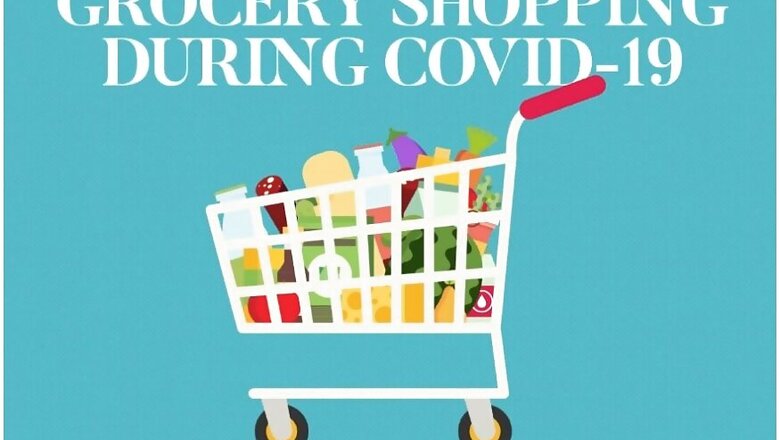
views
The Covid-19 pandemic is not going to dissolve into oblivion any time soon. Many of us have already spoken about the "new normal" — a world with as little physical interactions as possible. In such a world, it would seem that minimising points of physical contact would be the way forward, just like how we have managed so far. On this note, myriad companies and startups such as Swiggy, Zomato, BigBasket, Amazon, 1mg and more have rolled out steps such as contactless deliveries, where packages are left at your doorstep, with details about sanitation and health of the delivery person. Here's looking at how we can make a habit out of minimum-contact grocery shopping, and how our new world can thrive with as much of contactless exchanges as possible.
Abundant stores
India's largest metropolitan cities are still confined in red zones. As a result, only essential items are available in stores. However, the crisis period has led to practically all forms of essential items and household supplies being available across all grocery stores around you. Even multi-purpose chemist stores now stock household items, turning each shop into a one-stop shopping station. This reduces the number of places that you will need to access, in order to get yourself everything that you need — thereby reducing the amount of physical interactions that you would generally have.
More delivery options
Contrary to only a select number of grocery delivery services (Amazon Prime Now/Pantry, BigBasket, Grofers) that are generally available to you, a far larger number of online grocery delivery services are now accessible in most places. Alongside the more established players, startups such as AaramShop, Omart and LocalBanya are aiming to fill up the hyperlocal essential items demand. Companies such as Swiggy and Zomato, which so far operated in the online food deliveries space, have also delved into delivering groceries. Swiggy, in fact, is also helping in the delivery of packages from one location to another, much like Dunzo.
Going forward, initiatives such as JioMart are targeting smaller shops that are still not listed on hyperlocal delivery platforms. The idea is to help them use a free, accessible tool such as WhatsApp, to take orders and payments online, and deliver essentials via in-store or outsourced delivery partners.
Second wave for digital payments
All of this is introducing a new wave for digital payment adoption across India, in our quest for contactless techniques. With minimal touch points now a necessity, contactless payments via wallet to wallet transfers, and primarily UPI, are set for an exponential rise. More platforms such as WhatsApp Pay are almost here, and with a minimal onboarding cost, even the smallest of businesses are finding it easier to shift to taking online payments. Digital finance giants such as Paytm are increasingly rolling out options such as a loyalty programme for local kirana stores to onboard them on their platform.
Hence, with more stores, plenty of delivery options and a steadily increasing adoption of contactless payments, you can do your bit by continuing to shop via these steps as much as you can, even after the pandemic passes by.

















Comments
0 comment